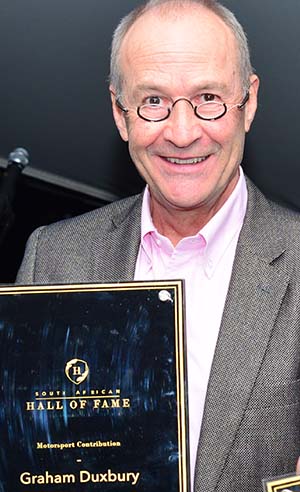The English actress, author and columnist Joan Collins is on record as saying that “age is just a number. It’s totally irrelevant unless, of course, you happen to be a bottle of wine”.
 In the sporting world many professionals are getting older, yet they are healthier and retain – if not improve – their skills levels as the years pass.
In the sporting world many professionals are getting older, yet they are healthier and retain – if not improve – their skills levels as the years pass.
In football, for example, AC Milan’s star striker, Zlatan Ibrahimovic is still revered by the opposition although he celebrates his 40th birthday this year.
From a motorsport perspective, Fernando Alonso, who recently turned 40, has always said age would not limit his competitiveness in Formula One.
In fact, Alonso believes that today he would easily beat a 23-year-old version of himself, thanks to the experience he has gained over the years. “It’s not the younger you are, the quicker you are,” he stresses.
A quick look at IndyCar in the US seems to confirm Alonso’s position: There the reigning champion, Scott Dixon, is 41 and Helio Castroneves, the latest Indy500 winner, is 46.
The history books are crammed with accounts of F1 drivers who savoured success after the landmark age of 40. Famously, Juan Manuel Fangio, the five-time world champion, was 40 when he won his first title and 47 when he finally decided to hung up his helmet.
Jack Brabham was 43 when he won the 1970 South African Grand Prix and Nigel Mansell was 41 when he topped the podium at the 1994 Australian GP. Graham Hill was 40 when he triumphed at Monaco in 1969.
Holding the record as the oldest driver to win a F1 race is the Italian, Luigi Fagioli, who was a spritely 53 when he won the 1951 French GP for Alfa Romeo.
However, the sport is definitely getting younger thanks to the talent-spotting efforts of organisations like Red Bull, Ferrari and others who sign promising juniors to their driver academies.
Perhaps the genesis for such a shift was the emergence of Lewis Hamilton who was identified as a promising talent at age 14 by former McLaren boss Ron Dennis who then guided and financed each of the young driver’s steps from karting to F1.
The results of Dennis’ plan were obvious as soon as Hamilton sat in an F1 car – he won his sixth F1 race – and as a consequence, several barriers to young driver entry came crashing down.
Another factor in the reduction of the average age of today’s F1 grid is the teams’ view that young drivers represent an investment in the future.
Rather than repeatedly spend huge amounts of cash on established drivers, some teams look to back a youngster, steer his career through the junior formulae and lock him into a budget-priced F1 contract should he demonstrate the required skills and promotable off-track abilities.
Perhaps fortuitously, in 2018 F1’s governing body introduced more stringent rules concerning the awarding of an FIA Super License. The rules were seen as an attempt to prevent an influx of F1 newcomers without significant, high-level racing experience.
Nonetheless, has the driver “churn” at Red Bull and Toro Rosso (now AlphaTauri) pointed to the overvaluing of young drivers? Are they simply “lottery tickets” signed up on the sometimes-slim promise of great returns in the future?
Would Sebastien Buemi, Jaime Alguersuari and Christian Klien, for instance, have benefitted from more time to get to grips with racing at F1 level before being shown the door?
As Alonso completes his twentieth year as a F1 driver (he debuted for the Minardi team in 2001), it is often forgotten that he was one of the youngest to enter the sport. In his glittering career, he was at one time acknowledged as the youngest pole-sitter, youngest race winner, youngest world champion and youngest two-time champion in F1’s history.
Today he finds the focus on his veteran status bemusing. “I have always been the youngest of those who raced, in every category,” he is reported as saying. “And lately, when I went to the Indy500 or the Dakar rally I was one of the youngest there.”
Is there a third world title on the cards for the ever-youthful Alonso? He’s not certain, but is adamant that – for sure – age will not be a limiting factor.
